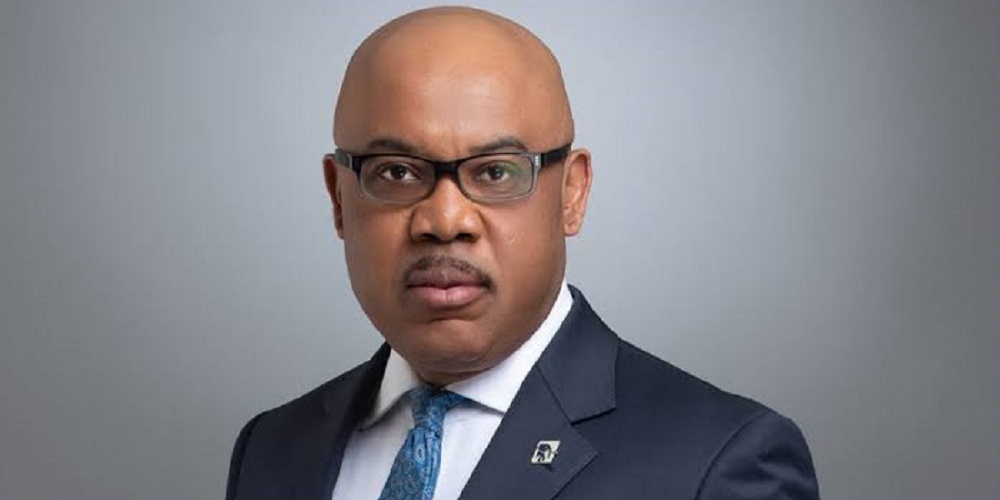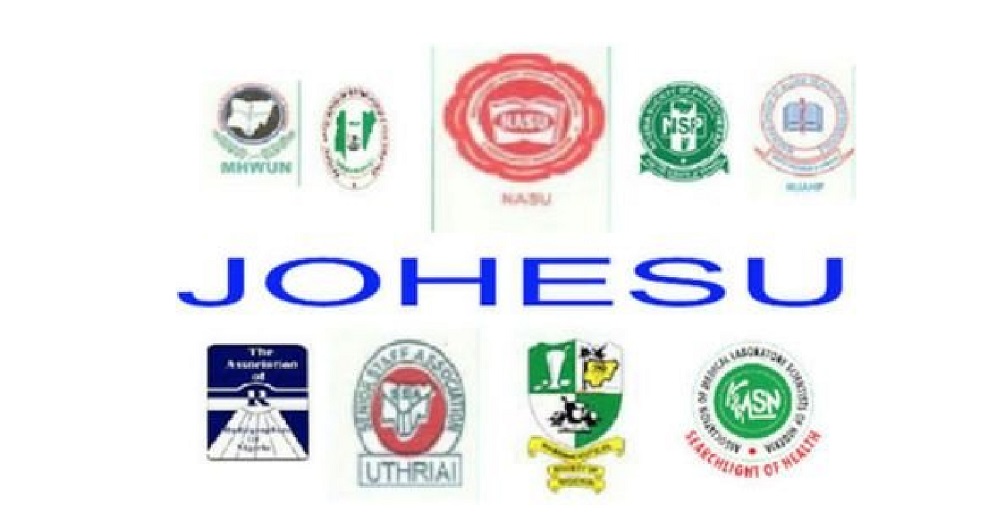News
UNCOMMON: Nominee rejects CBN board appointment in Nigeria

The Southeast nominee for membership of the Central Bank of Nigeria (CBN‘s) board of directors, Urum Kalu Eke, has rejected his appointment.
The Senate however confirmed the appointments of four others.
Rejection of appointment of membership of CBN board of directors by Eke from Abia state, came to the fore on Thursday during confirmation of appointments of four other nominees by the Senate.
The chairman of Senate Committee on Banking, Insurance and other Financial Institutions, Senator Adetokunbo Abiru (APC Lagos East), had in his report presentation for confirmation of the nominees by the Senate after screening exercise carried out on them, informed his colleagues that Mr Urum Kalu Eke didn’t attend the session.
He specifically informed the Senate that four other nominees – Mr Robert Agbede, Mr Ado Yakubu Wanka, Professor Murtala Sabo Sagagi and Mrs Muslimat Olanike Aliyu, appeared before the committee for screening and convinced it of their suitability for the appointments.
He thereafter, urged the Senate to confirm the appointments of the four nominees who attended the screening session and decline that of Kalu Eke who didn’t attend the screening exercise.
But for purpose of clarity, a member of the Committee, Senator Orji Uzor Kalu (APC Abia North), quickly rose to inform the Senate that Urum Kalu Eke being one of his constituents, told him that he was declining the appointment to avoid conflict of interest.
According to Senator Kalu, Urum Eke, is a consultant to the World Bank and other international financial institutions which would make him not have the required time to function well as a CBN director.
“Mr President, I’m a member of the committee that carried out screening on nominees forwarded to the Senate for appointment as members of Board of Directors of CBN by President Bola Tinubu”, Senator Kau said.
He added: “During the screening exercise, Urum Kalu Eke from Abia North, called me for not attending the session.
“He said as a consultant to the World Bank and other international financial institutions, he wouldn’t take the appointment to avoid conflict of interest.”
Who’s Urum Kalu Eke?
Urum Kalu Eke is a prominent figure in the Nigerian banking industry. He was born on October 17, 1966, in the town of Umuahia in Abia State, Nigeria. He obtained his Bachelor’s degree in accounting from the University of Nigeria, Nsukka, and subsequently went on to obtain a Master’s degree in business administration from the same institution.
Career
Eke has had an illustrious career in the banking industry, spanning over three decades. He began his banking career with Diamond Bank in 1992, where he worked in various capacities, including as an executive director and deputy managing director.
In 2014, he was appointed as the Group Managing Director/CEO of Fidelity Bank Plc, one of the top 10 commercial banks in Nigeria. Under his leadership, Fidelity Bank has made significant strides in the areas of digital banking, innovation, and sustainability.
Achievements
Eke has received numerous accolades and recognitions for his contributions to the banking industry. In 2020, he was named the Bank CEO of the Year at the BusinessDay Banks and Other Financial Institutions (BOFI) Awards.
He has also been recognized by various organizations for his leadership and achievements in the banking industry, including being named as one of the Top 50 CEOs in Nigeria by BusinessDay in 2019.
Personal Life
Eke is married with children and is known to be a private person who values his family time. He is also known for his philanthropic activities, including supporting education and healthcare initiatives in his community.
News
Senators bicker over source of funding for regional devt commissions

Senators on Thursday bicker on source of funding for the various Zonal Development Commissions created by the Senate along with the House of Representatives .
This is as it struck out some provisions of section 23 of their establishment bills , conferring operational immunity on board and executives of the commissions .
Division on approval of source of funding recommended for the commission among Senators arose during clause by clause consideration of the South – South Development Commission Establishment bill 2024 in plenary Thursday which is used as operational and structural template for the other commissions .
Senate Committee on Special Duties had in its report , recommended that 15% of Statutory allocations of member States in a commission , should be used to fund the commission by the federal government .
But some Senators like Senator Yahaya Abdullahi ( PDP Kebbi North ) , Wasiu Eshinlokun ( APC Lagos East ) , Seriake Dickson ( PDP Bayelsa West ) etc , raised observations on the recommendation .
Specifically , Senator Yahaya Abdullahi , said the provision would lead to litigation against the federal government by the State government as no state would like its statutory allocation to be tampered with in the process of funding a zonal development commission .
” Mr President , distinguished colleagues , the 15% of statutory allocations of member States , recommended for funding of their zonal development commissions , would be litigated against by some state government”, he said .
In a bid to quickly correct the meaning read into the 15% statutory allocation of the State by Senator Yahaya Abdullahi and many other Senators who indicated interest to comment , the Deputy President of the Senate , Barau Jibrin, quickly rose to correct their impression .
Senator Barau in his explanation told the Senate that the 15% Statutory allocation of member states for funding of their zonal development commission , would not entail any deduction from their statutory allocation .
” Mr President , distinguished colleagues , the 15% of Statutory allocation of member states , recommended for funding of Zonal Development Commissions by the federal government, is not about deduction at all .
” What is recommended as contained in the report presented to us by the committee on Special duties and being considered by the Senate now , is that 15% of statutory allocation of member states in a zonal development commission would by way of calculation by the federal government, used to fund the commission from the Consolidated Revenue Fund .
” Each state has monthly statutory allocation, 15 % of which as contained in this report being considered, will be calculated by the federal government and removed from the consolidated Revenue Fund for funding of their Development Commission .
Despite Barau’s explanation, many of the Senators still not convinced, indicated their interest to speak , but prevented from doing so by the President of the Senate , Godswill Akpabio who said the provision was in order as constitutionally supported .
” We don’t need to be debating on whether 15% statutory allocation of member states in a commission would be deducted or not in view of provisions of section 162 ( subsection 4) of 1999 constitution which empowers the National Assembly to appropriate from either the Consolidated Revenue Fund or Federation Account .
” 15 % of statutory allocation of member states , has been recommended by the Senate and by extension , National Assembly , for funding of their zonal development commission by the federal government, anybody who want to go court over that may do so “, he said .
He consequently put the question on adoption of the provision for voice votes to Senators and ruled that the ayes have it .
In his remarks after the passage of the consolidated bills , Akpabio thanked the Senators for spending several hours on final consideration and amendment of the Zonal Development Commission which according to him , would serve as bedrock for the newly created Ministry of Regional Development.
The bills cosidered and passsed are the South – South Development Commission Establishment Bill 2024, North West Development Commission Act ( Amendment) Bill 2024, South East Development Commission Act ( Amendment) Bill 2024 apart from the South West Development Commission Establishment Bill 2024 and North Central Development Commission Establishment Bill 2024 earlier passed.
News
SAD: Popular Gospel Artist, Dare Melody Loses Wife

The Nigerian gospel music industry is sad over the loss of Adedoyin Odunuga, the wife of celebrated gospel artist Damilare ‘Dare Melody‘ Odunuga.
Adedoyin was reported dead on Thursday, leaving a void in the family and among their circle of friends and supporters.
Dare Melody shared the heartbreaking news on his Instagram, expressing profound grief over the loss of his beloved wife.
“It is with deep sadness and heavy hearts that we inform you of the transition to eternal rest of our beloved mother, wife, sister, and friend,” he wrote, paying tribute to her enduring presence in his life and career.
Known for his uplifting and spiritually enriching music, Dare Melody has often publicly acknowledged his wife’s unwavering support and shared life.
In a gesture of his deep affection, he gifted her a new house on her birthday in February 2023, which highlighted the strong bond they shared.
Dare Melody’s influence in the gospel music scene is significant, with hits like ‘Damilare’ and ‘Alade Ogo’ that have touched the hearts of many.
His music, which often explores themes of faith and resilience in the face of hardship, resonates deeply with his audience.
In times of personal trials, Dare Melody has turned to his faith, which is vividly expressed in his song ‘Eleti Gbaroye’, reflecting on God’s comforting presence in moments of pain.
The gospel music community, fans, and followers have extended their condolences and support to Dare Melody and his family during this difficult time.
News
JOHESU insists on strike, mobilises members

The Joint Health Sector Unions and Assembly of Healthcare Professionals has started mobilising its members across the country to embark on a seven-day warning strike, beginning from midnight of October 25, 2024.
The National Secretary of JOHESU, Martin Egbanubi, disclosed this to The PUNCH on Thursday.
JOHESU is made up of the Medical and Health Workers Union of Nigeria, the Nigerian Union of Allied Health Professionals, the Senior Staff Association of Universities, Teaching Hospitals, Research Institutions, and Associated Institutions, and the Non-Academic Staff Union of Educational and Associated Institutions.
JOHESU, on October 9, 2024, notified the Coordinating Minister of Health and Social Welfare, Prof Muhammad Pate, to resume its suspended strike on October 25, if its demands were not met.
The unions suspended its strike which took place from May 19 to June 6, 2023, following the intervention of President Bola Tinubu.
The union’s demands are the adjustment of the Consolidated Health Salary Structure as was done with the Consolidated Medical Salary Structure since January 2, 2014; the implementation of a consultant cadre for pharmacists in Federal Health Institutions; the upward review in the retirement age from 60 to 65 years for health workers and 70 years for consultants, and the payment of JOHESU members in professional regulatory councils.
Others are the payment of arrears of CONHESS review, the tax waiver on healthcare workers’ allowances, the immediate payment of COVID-19 inducement hazard allowances to omitted health workers, the immediate suspension of planned establishment and activities of National Health Facility Regulatory Agency, and the withdrawal of the Drug Revolving Fund Standard Operating Procedures.
Speaking with our correspondent, Egbanubi said, “We have started mobilising our members across the country, we have put them on alert, we have told them to embark on the strike by midnight of October 25, 2024.
“We’ve not heard from the government officially, there has not been a consolation to apprehend the discourse. So, we will embark on the strike.”
Credit: PUNCH
-

 Economy22 hours ago
Economy22 hours agoSEE Black Market Dollar To Naira Exchange Rate Today, October 24 2024
-

 News24 hours ago
News24 hours agoHow Power Minister, Adelabu Survived Tinubu’s Sledgehammer
-

 News13 hours ago
News13 hours agoReps Give Five-day Ultimatum To Perm Sec, Works Ministry Over N1.46bn Abandoned Road Project
-

 News13 hours ago
News13 hours agoYou Should Be Sanctioned For Perjury’, PTD Chides NUPENG President
-

 News11 hours ago
News11 hours agoForeign object hits VP Shettima’s Plane in US, aborts Commonwealth trip
-

 Entertainment24 hours ago
Entertainment24 hours agoBobrisky Complained of Chest Pain, hospitalised
-

 News23 hours ago
News23 hours agoTinubu moves to cut down cost of governance after cabinet overhaul
-

 News15 hours ago
News15 hours agoCaycee Mboya, tallest woman in Kenya, wants to be a second wife








